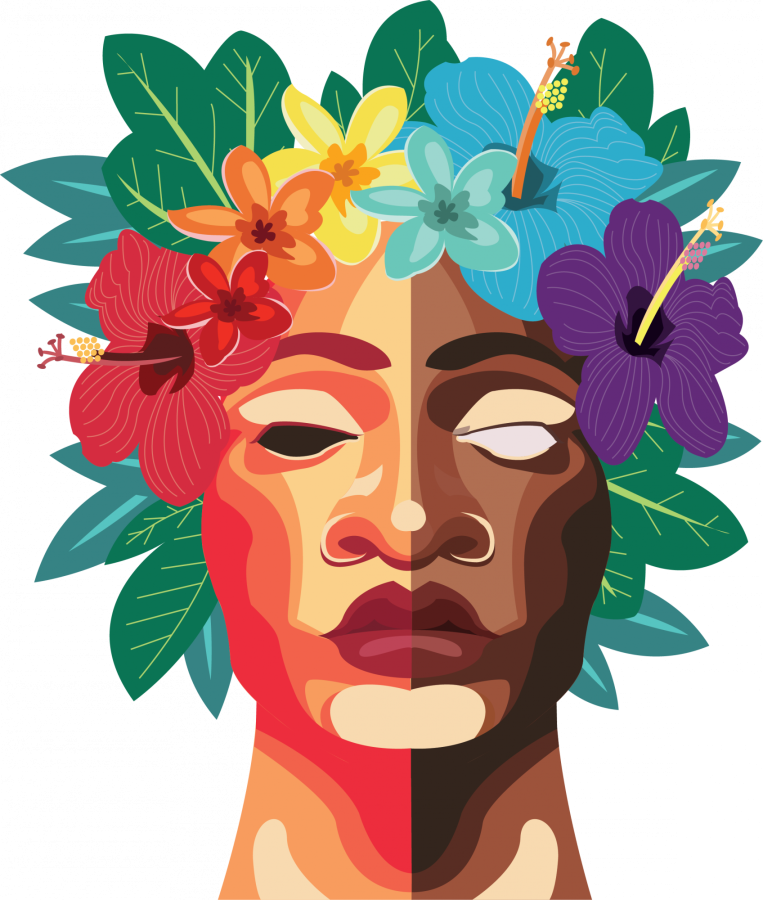Recently I watched a video on YouTube from the channel Jubilee, and the title was, “Are Americans Obsessed with Race and Gender?” First of all, props to the creator of that title because it truly does catch the eye. Second, I believe it is an essential question to ask because of the new social advances in our society and poses the question: Are we taking it too far?
When I first read the title of the video, my first reaction was, “Of course not!”, because of the negative connotation the word “obsessed” usually possesses. But as I began to think about it, the more I came to the conclusion that maybe we kind of are. Not just America but the whole world, society if you will. But to me, that isn’t a bad thing.
As the lines between politics and human rights begin to get blurred, the term identity politics is coming to light. According to Merriam-Webster Dictionary, identity politics can be defined as “politics in which groups of people having a particular racial, religious, ethnic, social, or cultural identity tend to promote their own specific interests or concerns without regard to the interests or concerns of any larger political group.”
In short, this is politics where people remove themselves from the greater whole because of a certain trait they have, like being black or a woman, and fight for those rights politically.
A lot of people see #BlackLivesMatter and the #MeToo movement as political campaigns, and those can be described as movements underneath identity politics.
RELATED: OPINION: UA party culture is for the selected few
These campaigns get huge amounts of backlash because of the alleged separation it creates between two groups of people. In the case of Black Lives Matter, it is black versus white, and in #MeToo, it is wrongfully deemed female versus male. In the eyes of people who disagree with these movements, they usually have a “see no color” mentality, where they believe if we just ignore the problems and see each other as equals, we are suddenly equal.
I haven’t been on this earth for a long time, but I can tell you from experience and history that ignoring these issues is the best way to keep them alive. When speaking about equality, civil rights activists do not aim to advocate for switching gears and suddenly believing that color, religion, sex and sexual orientation do not exist. It is about understanding how, despite someone’s physical differences and experiences, they are no more or less human than you.
I believe identity politics is about separating yourself from the greater whole so that people can begin to empathize with your experiences and respect them. No white man could ever understand what a black man goes through in society, but that is not the point. The point is to educate yourself and be willing to recognize social status and how that affects your privilege. Political campaigns are important to give voices to people who are silenced otherwise, and trying to silence these movements puts a barrier between equality and ignorance.
Something a lot of people have against separating each other based on our identities is the idea that, most of the time, this results in anger and hatred. I would say that in general, the makers of Black Lives Matter are not angry at white people — they are angry nobody is listening. Black Lives Matter began because of police brutality. It began out of the hatred the system has for black people, so instead of staying silent, a movement was created.
RELATED: OPINION: Tarana Burke on the #MeToo movement
Regularly, Black Lives Matter is coined as being a group of angry black people who are upset that they are marginalized, misunderstood and have high amounts of self-loathing. Truly, Black Lives Matter is filled with black bodies who are rightfully tired of the biased justice system, brutality and generations of hatred, so I would say they have every right to be up in arms. And no, not to remain silent.
Race and identity are two things that are never going to go away. There will always be harmful stereotypes, microaggressions and injustices we will have to deal with. I believe the obsession with race today should not come from trying to get rid of identity, but from trying to understand why identity has grown to become a huge wall that stops compassion and empathy within the human race. The goal should be trying to eliminate that wall. Race isn’t the problem, how we treat it is.
So, back to the question the video I found at 3 a.m. on YouTube posed: “Is America obsessed with race?” I would say yes, but for all the right reasons. When topics like race, gender and sexuality get overlooked, more and more people get dehumanized. But as soon as people come forward to learn about these topics, more and more people get labeled human again. We should not be obsessed with our cultural differences, but we should be obsessed with minimizing how they affect our rights in this country.
One thing we can all agree on is that we are all human and that is the one identity we have in common. We are all different shapes, sizes, colors, heights, sexualities, religions and more, but those have nothing to do with what we can bring to the world, what we can achieve and what we can change. This world is filled with a lot of hatred, but love — love simply between human and human — can get out of the hole of inequality we have dug ourselves into for generations
Rhaya Truman is a freshmen majoring in Communications and Gender & Women’s Studies









